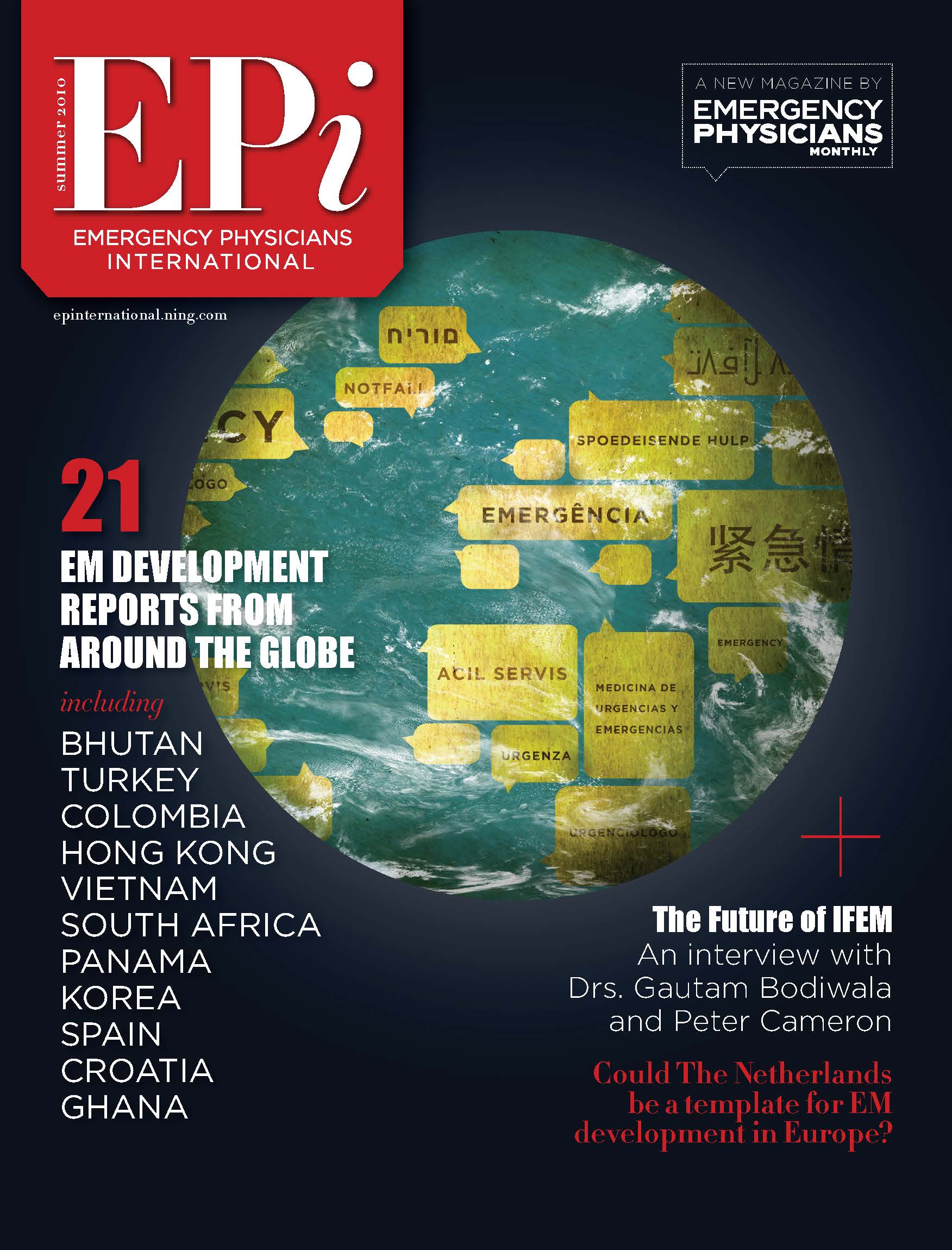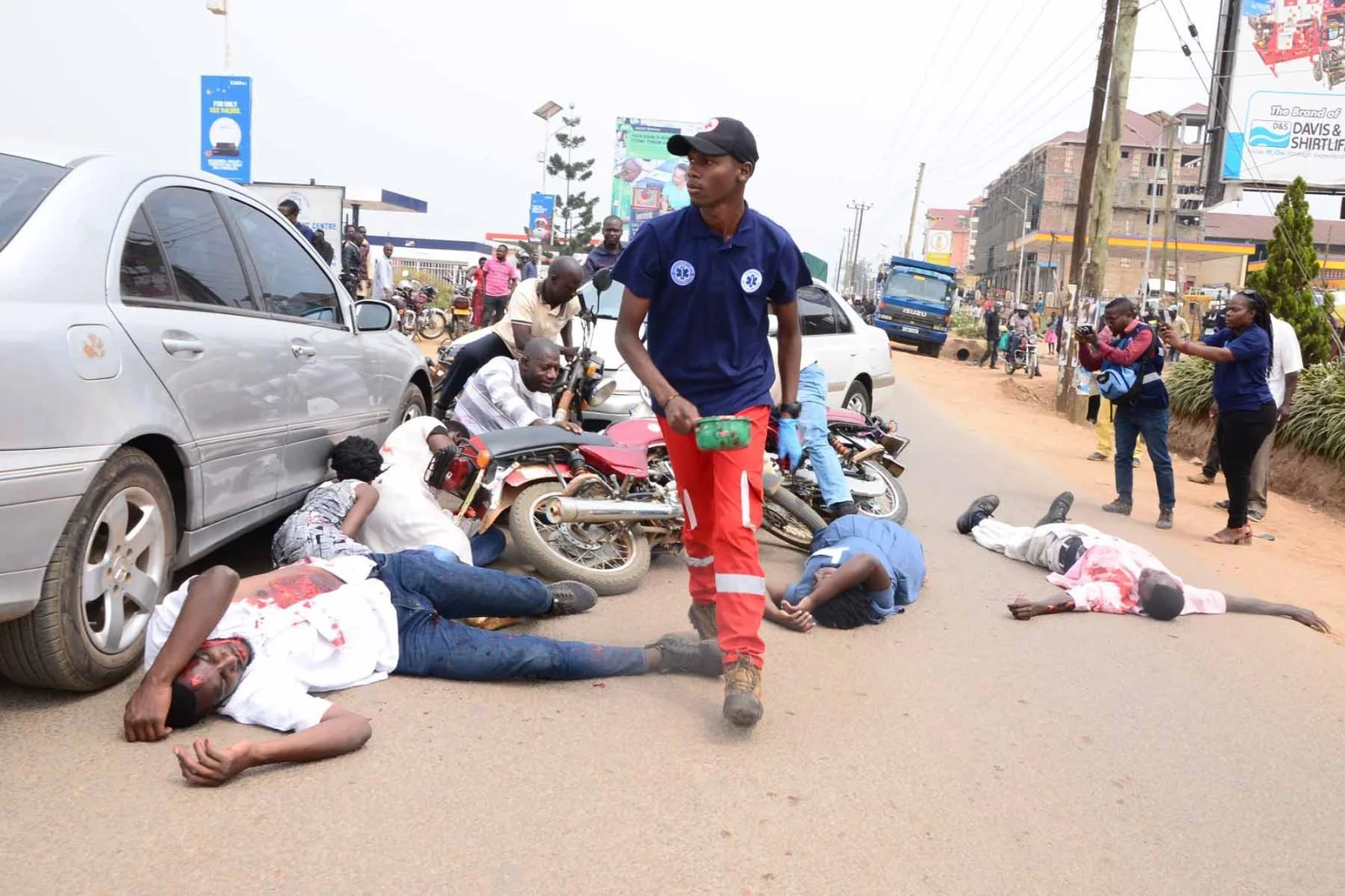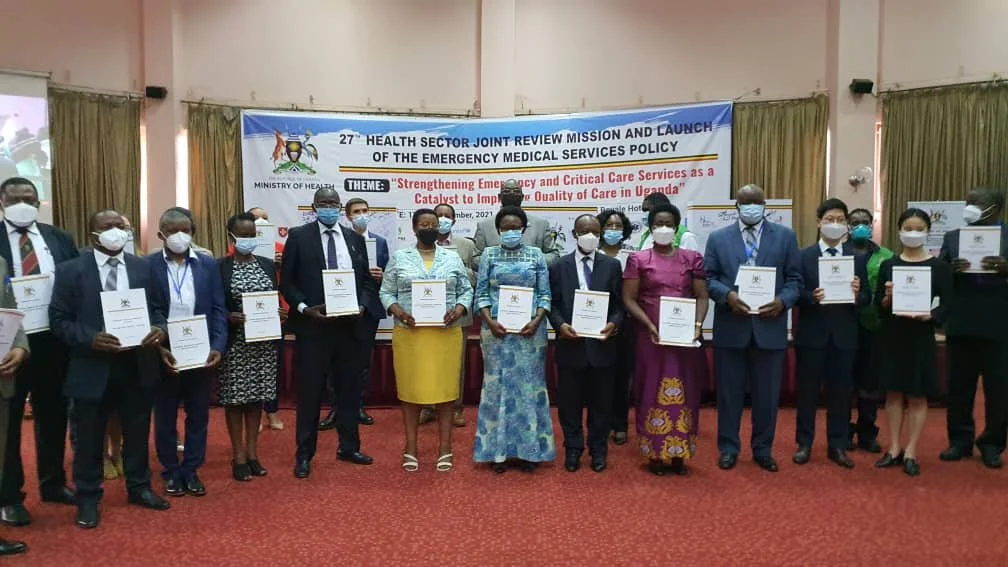The Recent Development of Emergency Medicine in Uganda
EMS Simulation/Demonstration 2020
It was a cool wet morning in April 2015 when Grace hailed a ride from a passing boda (motorcycle taxi). This 39-year-old mother of three was on her way to work at a local grocery in Mbarara. The road was full of cars, bodas, trucks, buses, and pedestrians as it was every morning. This morning seemed no different. The boda driver was looking left when suddenly a car appeared from the right. He tried to brake and swerve but the roads were slick. The boda slid sideways slamming Grace’s leg into the front left fender of the car and throwing her over the hood. She woke up on the pavement surrounded by people. The sharp pain in her right thigh was unbearable, and blood was streaming down her forehead. Although many bystanders were there to help, they didn’t know what to do and there was no emergency phone number to call for an ambulance. The best they could do was rush her to the nearest hospital in a truck. When Grace finally arrived at the hospital an hour later, there was no coordinated triage or resuscitation, and no emergency physician to manage her care. No E-FAST exam was done to find the hemoperitoneum. And no one recognized her deteriorating mental status indicated an expanding epidural hematoma. Unfortunately for Grace and her family, she died of her injuries that day.
Although Grace’s story is fictionalized, the state of emergency response and care in Uganda six years ago is not. Throughout this country of 47 million, similar and numerous unnecessary deaths were occurring daily. A national survey in 2018 found that there was no EMS policy, no toll-free number for emergency response, more than 90% of pre-hospital care was provided by the traffic police and untrained bystanders, and only 31% of pre-hospital providers had standard ambulances with equipment, supplies and medicines required for emergency care. But fortunately, things are changing. The Ministry of Health (MOH) recognized the lack of emergency coordination and care, and the increasing frequency of preventable deaths from trauma and acute medical conditions and set to work to build a robust emergency care system. An EMS Department was established under the MOH, an EMS policy was recently launched, and the training and deployment of emergency care providers is ongoing across the country.
EMS Simulation/Demonstration Participants 2020
In 2017 the pioneering Emergency Medicine residency (MMED EM) in Uganda was launched at Mbarara University of Science and Technology (MUST) through the leadership and expertise of Dr. Derek Harborne, an emergency physician from the UK working in Uganda. With guidance and funding from the MOH, a fully equipped resuscitation bay was established at Mbarara Regional Referral Hospital to support the residency training and facilitate coordinated care of emergency patients by the residents. The MMED EM program graduated its first cohort of Ugandan-trained emergency physicians in 2020 in the middle of the Covid-19 pandemic and will graduate its second class soon. The second MMED EM program in Uganda launched at Makerere University in 2018 and will graduate its initial class this academic year. The residency programs are also training physicians from Kenya and Somalia, who will eventually support EM education and service delivery in their respective countries. In addition, a training program for mid-level emergency care providers was launched in 2018 under MUST, training and providing emergency care at Masaka Regional Referral Hospital. Another training program for out-of-hospital emergency providers was launched at Rugaba Training Schools. Graduates of these programs are expanding the reach of emergency care to outlying hospitals and communities, and their skills have become increasingly vital and useful in the current Covid-19 response.
Realizing that a professional organization was needed, Emergency Care Society of Uganda (ECSU), an interprofessional society of clinicians, researchers, policy makers, public health professionals and students was established. ECSU has been instrumental in advocating for EM services at different institutions and has served as a platform for sharing EM resources nationwide. ECSU was reorganized and rebranded as Emergency Medicine Uganda (EMU) in 2018 at the African Federation of Emergency Medicine (AFEM) conference in Kigali. EMU’s first president, Dr. Annet Alenyo, is the current president of AFEM and works as a technical advisor for the EMS Department at the Ugandan MOH on EM development policy and roll out. Dr. Prisca Kizito, one of the pioneering EM residents from MUST, serves as the current president of EMU, and is the acting Head of Department of Emergency Medicine at MUST.
Ugandan EMS Simulation/Demonstration
Enthusiasm in Emergency Medicine and the developments in Uganda has grown. Medical and nursing students have shown widespread interest in learning resuscitation and emergency skills. In this regard, several student-led groups have been established to facilitate coordinated learning and mentorship. One example is the Emergency Medicine Interest Group started at MUST in 2019. It has innovatively used local and global expertise through simulations and Zoom teaching modules to support student learning of EM topics.
Not surprisingly, Emergency Medicine has been met with misunderstanding and skepticism in Uganda. This newest specialty has had to earn its place through education, interpersonal interactions, and mostly through demonstrations of necessity and competency. During the past year, the Covid-19 pandemic and other events including violent attacks during the elections, and the brutal terrorist bombings in Kampala demonstrated the need for a robust emergency medicine system. During the November 2021 bombings seven were killed and more than 30 patients required prompt emergency triage and care. The few trained emergency care providers rose to the challenge, demonstrating skills and efficiency to the world, while saving lives.
Uganda MOH EMS Policy Roll Out Nov 2021
Many challenges remain. One of the highest priorities is building and training the emergency care workforce needed for a young growing country of 47 million. Two EM residencies graduating fewer than 10 emergency physicians a year are not enough. More EM residencies will be required. The training of emergency nurses and emergency technicians needs to greatly expand but will require more funding and expertise. Disseminating the skills of early recognition of critical patients and resuscitation to other medical providers outside the specialty of EM is needed. Also, Uganda has one of the youngest populations in the world with a median age of 16. Thus, there needs to be more funding for research, education, training, and age-appropriate resuscitation equipment in pediatric emergency medicine. Furthermore, disaster planning, emergency call and dispatch coordination systems, and policy developments will be required at each regional, district, and hospital system delivery level.
Overall, the development and expansion of Emergency Medicine in Uganda over the past 5 years has been impressive. There has been guidance and assistance support from many individuals and organizations throughout the world during this process, but Ugandans and the Uganda MOH have fully taken the lead in development at this point. The future of emergency care in Uganda looks bright. More patients with treatable acute traumatic and medical conditions will be able to return home to their children and families. That will be of great value to the country and society.
Randall Ellis, MD MPH MBA
Dr. Ellis is director of Emergency Medicine Programs with Seed Global Health and a physician educator with Mbarara University of Science and Technology, in addition to a practicing emergency physician.
Rashidah Nambaziira, MSc
Ms. Nambaziira has over 10 years’ experience in healthcare organization management, coordination of research and training programs, and curriculum development for EM training programs, including the Mbarara University Emergency Medicine programs. She is passionate about interprofessional collaboration, and advocacy for equitable policies and systems for patients and healthcare professionals. She is currently a lecturer at the University of Global Health Equity in Butaro, Rwanda.
All photos provided courtesy of Randall Ellis, MD MPH MBA











